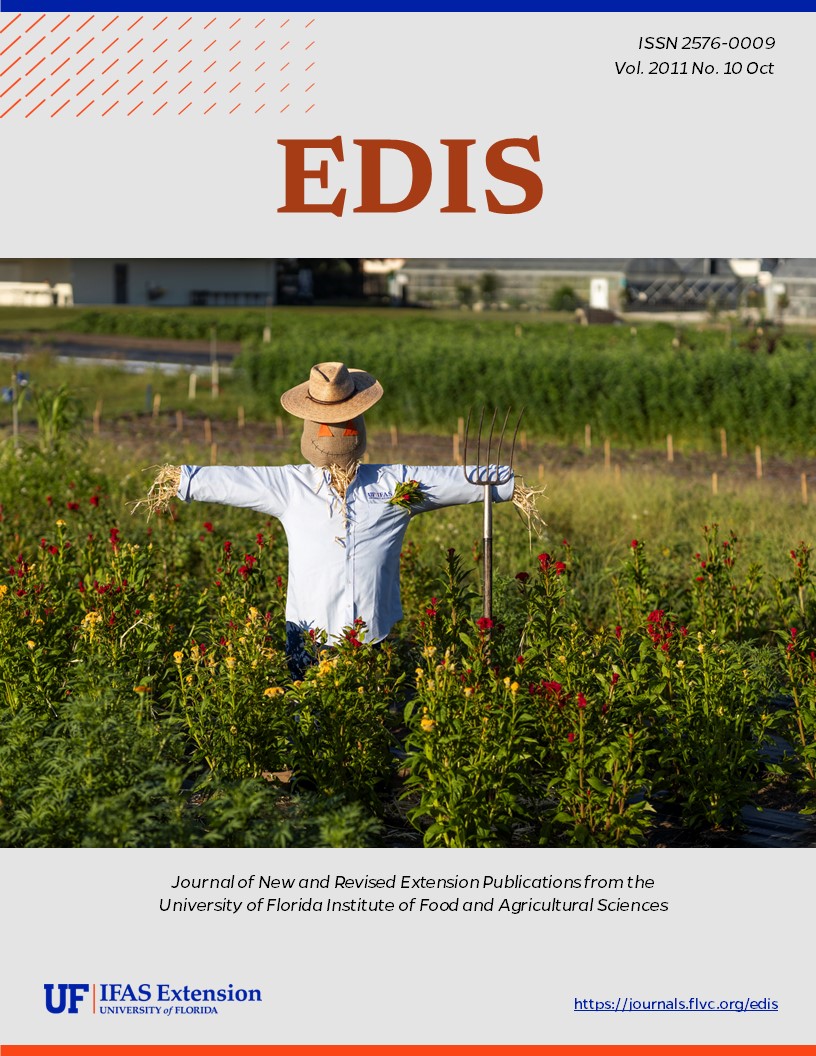Abstract
Florida's sandy soils are well known for their inability to hold water. Very little water is stored in the root zone, and excessive water applications result in the loss of mobile nutrients such as nitrogen, due to deep percolation. These soil properties require precise irrigation scheduling to avoid unnecessary loss of water and nutrients while providing a sufficient amount of water for optimum plant growth and production. This document presents scheduling tips for drip irrigation of vegetables.
References
Clark, G.A., G.D. Stanley and A.G. Smajstrla. 1988. Micro-Irrigation in Mulched Bed Production Systems: Irrigation Depths. Bulletin 245. Gainesville: University of Florida Institute of Food and Agricultural Sciences.
Smajstrla, A.G., B.J. Boman, G.A. Clark, D.Z. Haman, F.T. Izuno and F.S. Zazueta. 1988. Basic Irrigation Scheduling. Bulletin 249. Gainesville: University of Florida Institute of Food and Agricultural Sciences.
Smajstrla A.G., D.S. Harrison and F.X. Duran. 1983. Tensiomerers for Soil Moisture Measurement and Irrigation Scheduling. Circular 487. Gainesville: University of Florida Institute of Food and Agricultural Sciences.

This work is licensed under a Creative Commons Attribution-NonCommercial-NoDerivatives 4.0 International License.
Copyright (c) 2011 UF/IFAS

